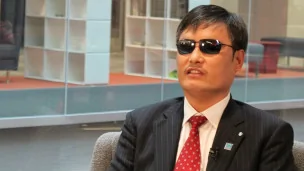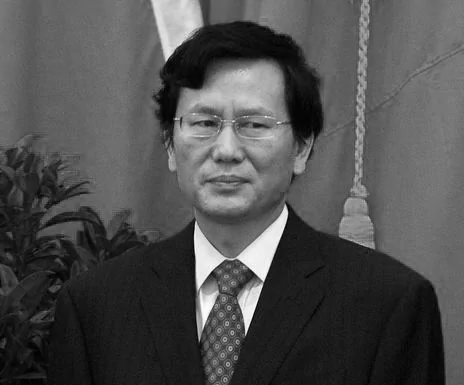Xi Jinping recently proposed“three adherence” policies in
his speech to Politburo members of the18th Party Congress.
“Adherence-to Marxism-Leninism& Mao Zedong Thought”.
“Adherence to socialism with Chinese characteristics”.
“Adherence to the leadership of the
Chinese Communist Party(CCP)”.
International media commented that these three
policies are the root cause of CCP regime’s crisis.
Moreover, avoiding political reform will
be riskier for the new CCP administration.
The touting of reform by the CCP has
raised concerns in international media.
The New York Times commented that“Xi Jinping’s
most urgent challenge is political, not economic.”
The regime’s market-oriented economic reforms
are“unlikely to succeed without political efforts
to curb the power of the state, control corruption
and give the people a voice in public policy.”
The NY Times’ article analyzed reasons why economic
reform cannot take place without political reform.
“Economic initiatives needed to revive and sustain growth
are those that will hurt the entrenched interest groups.”
They are“state-owned enterprises, local governments,
as well as the bureaucracy and families of the ruling elite”.
These groups“have amassed
huge wealth through corruption”.
They“form the core constituencies of the Communist Party”.
“In other words, the party itself will
become the of these reforms.”
Radio Free Asia reviewed that the“three adherence”
policies pacify CCP conservatives, and also reflect
the Party’s new leadership team’s common position.
The BBC quoted a commentary in The Economist,
saying,“the party’s efforts to maintain control through
repression are leading to instability, not stability.”
“Reform is risky, but avoiding it is riskier still.”
Lin Zixu, Critic:“Xi Jinping has just taken office, and
would certainly speak in favor of CCP interest groups.
But Xi himself is clearly aware of his own situation.
He has two choices, either to stand on the side
of the CCP, as did Jiang Zemin and Zhou Yongkang.
Alternatively, he can speak for the civilians.
But it’s a dead end for him if he wants to keep
the CCP, and also to curry favor with the public.”
Critic Wen Zhao comments on Xi Jinping’s
claim of adhering to“Mao Zedong Thought”.
Xi spoke along the same line set at the18th Party
Congress, and this may not be Xi’s own view.
Xi Jinping has explicitly said before
to follow Deng Xiaoping's path.
Wen Zhao thinks that this implies that‘Mao
Zedong Thought’ will only be kept as a mask
for the CCP, with its influence further diluted.
Wen Zhao:“Xi’s claim of adhering to Marxism-Leninism
and Mao Zedong Thought aims to heal the division
between the hard-liners and the reformists.
His goal is to try to overcome the internal
fracture caused by the Bo Xilai scandal.
Now he wants to maintain the CCP
system to prevent its immediate collapse.”
Lin Zixu says that the CCP actually doesn’t
have the final say on its alleged“adherence”.
The reality has shown an increasing shift on this.
Lin Zixu:“There are two causes behind the change.
Firstly, the rapid development of internet
technology has helped the Chinese to awaken.
Secondly, the CCP's decay has helped reduce
the Chinese people’s fear towards the party.
To be certain, the public in China will be
more conscious and braver in the near future.
As long as the internet-backed public voice exists,
the CCP is bound to be contained, and will finally perish.”
In the recent Southern Weekly incident, the CCP
Central Propaganda Department instructed that
“the Party’s control over media must not waver.”
Wen Zhao remarks that this is Xi Jinping’s attempt
to find out how much the compatibility of the CCP
"Party spirit" goes within the existing Constitution.
Wen Zhao:“Xi Jinping’s political goals
and political practices are quite adaptable.
We don’t know what he will do or not do, but now
his action has shown a quite obvious inclination.
That is, he still tries to maintain the CCP totalitarian regime,
and not to make a fundamental change in the system.”
Wen Zhao adds that the CCP is a
totalitarian system in terms of politics.
Furthermore, it controls people’s mind, an
absolute totalitarianism in terms of philosophy.
Both are not compatible with Constitutionalism.
Wen Zhao asserts that any attempt to transform the CCP
totalitarian system into a Constitution will end in failure.





